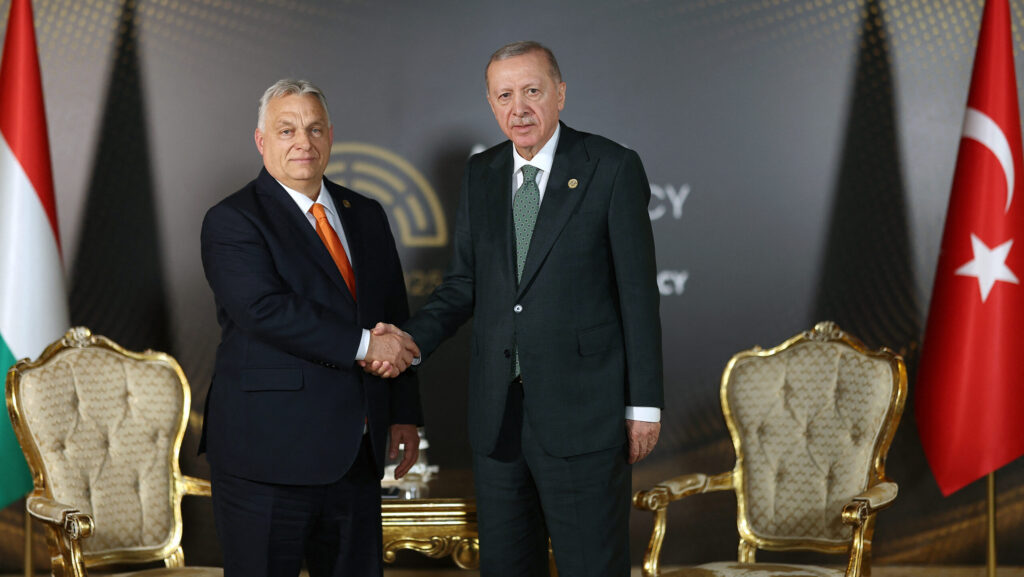Hungary’s decision to withdraw from the International Criminal Court (ICC) has divided the international community, as clearly reflected in the reactions it provoked. While one part—mainly on the left of the political spectrum—responded with outrage, others welcomed the move, pointing to what they view as corruption and political bias within the Hague-based court.
A clear example of the former came earlier this week, as human rights NGOs such as Amnesty International rallied behind Hamas in condemning Hungarian Prime Minister Viktor Orbán’s decision not to arrest his Israeli counterpart Benjamin Netanyahu during an official visit to Budapest. A recent opinion piece by Fred Fleitz, published by the US outlet Newsmax, stands as a prime example of the latter.
Titled ‘Hungary’s Orbán Wants No Part of “Political Tool”,’ the article by the former Deputy Assistant to the President and to the Chief of Staff of the National Security Council under Donald Trump’s first presidency argues that Orbán made the right decision—both morally and politically.
Fleitz recalls that Orbán’s move follows two executive orders signed by President Trump sanctioning the ICC for its politicized prosecution of Israeli officials. He also notes that Hungary was not the first country to receive Netanyahu after the ICC issued an international arrest warrant for him in November 2024, on charges of war crimes and crimes against humanity. ‘The Polish government made a similar decision in January when it defied an ICC order to arrest Netanyahu during his visit to Poland for events marking 80 years since the liberation of the Auschwitz Nazi death camp,’ Fleitz writes. He adds that Belgium, as well as Germany’s acting Chancellor Olaf Scholz and his successor Friedrich Merz, also indicated they would not arrest Netanyahu if he visited their countries.
The author then explains why the ICC is widely seen as a compromised institution, arguing that it applies double standards in its decisions.
‘Although the ICC indicted Russian President Vladimir Putin in 2023 for the 2022 invasion of Ukraine, it never indicted Syrian President Bashar al-Assad for gross human rights violations and atrocities committed by his regime since the Syrian rebellion began in 2011. Nor has the court indicted the leaders of Iran, China, or Venezuela for their well-documented human rights abuses.’
As he notes, longstanding concerns about the ICC are shared by many US lawmakers. Although President Bill Clinton signed the Rome Statute in 2000, the United States never ratified it. President George W Bush formally ‘unsigned’ the treaty in 2002. According to Fleitz, the statute never made it to the Senate due to strong bipartisan opposition, with many senators viewing the ICC as a threat to US national sovereignty and the constitutional rights of American citizens.
‘The International Criminal Court is an out-of-control international tribunal that represents a serious threat to American sovereignty’
Congress also passed legislation protecting US officials and service members from the court’s decisions, even authorizing the use of military force to free any American—or citizen of a US-allied country—detained by the ICC. A pointed reminder: this scenario closely parallels the Netanyahu case. According to Trump’s executive order, the ICC had engaged in ‘illegitimate and baseless actions targeting America and our close ally, Israel.’ The legislation became known as the ‘Hague Invasion Act.’
In conclusion, Fleitz reaffirms his support for Hungary’s decision to ‘stand with the US’ against the ICC. ‘The International Criminal Court is an out-of-control international tribunal that represents a serious threat to American sovereignty and the freedom of US citizens and the citizens of our allies,’ he writes, urging Trump to take additional steps to encourage other countries to withdraw from the ICC—and ultimately to shut the institution down.
Related articles:








